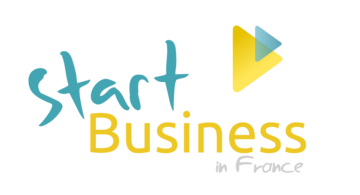A few changes have been made in June 2025 to the Visa application for France. These key changes will impact future freelancers in France. Make sure you read this article, as it will impact your application process and timescale to move to France.
1 - Project validation required for ALL projects including profession libérale
In the past, only manual activities, “artisans” and buy-to-resell trading activities “ activités commerciales” required a project validation from ANEF/ Ministère de l’Intérieur. This included gites and retreat businesses, craft activities, photographers, estate agents, etc.
The bad news is that this has now been extended to profession libérale too. This is you, if you are a coach, consultant, programmer, yoga teacher, etc. You can look at my 100 Business Ideas to Freelance in France if you are not sure.
This means submitting your business plan, financial plan, and proof of savings to ANEF/Ministère de l’Intérieur, who will then decide if your business project is viable. Getting an “avis favorable” means that you can move to the next step, i.e fill in your France Visa form and book your TLS or French Embassy appointment. Unfortunately, getting “avis défavorable” will mean going back to square one: rethinking your project, adjusting it, trying to figure out why it was rejected. Big clue here: they don’t actually tell you why it is rejected.
2 - Three direct impacts for profession liberale projects.
2.1 - Impact on your dossier
Let’s keep it real here and clearly state that ANEF/Ministère de l’Intérieur is pretty thorough about vetting business projects. They have business advisors reading business plans and analysing the financial plans like a bank manager.
This is my take on things, obviously, but having worked with bank managers for 10 years as a business advisor to French entrepreneurs, I see that their comments or questions on customer projects are very similar. For instance, for the last 6 months, extra requests for information from ANEF for My French Business Visa customers tended to be on French-specific industry rules and regulations, cashflow projections for tougher projects, and proving the existence of potential customers.
You therefore need to prepare your business project, as if you were about to borrow 30,000€ from a bank. It will be harder to land in France for a first-time freelancer, with no signed customer yet.
2.2 - Impact on your visa application process
The visa application process has slightly changed and you now need to start by getting a validation from ANEF, before filing your France Visa application form and booking your TLS/Embassy appointment. Before, you could just fill in your France visa form, book your RDV and hand over your printed business plan on your appointment day.
Here’s a summary of the new process.

3.3 - Impact on your timescale to move to France
I used to say that someone with a profession libérale, consultancy-type project, could get the visa process done within 4 months. Not anymore!
ANEF takes 2 to 8 weeks to validate a project. It may depend on the time of year (slow in December and summer) or the complexity of your project. Over the last year, some of My French Business Visa customers had an answer within 4 days (yeepee) to 2 months. My horror story this year is a photographer whose dossier seemed complex for ANEF. They asked us several questions and somehow the dossier got stuck on someone’s desk for… 2 months! Then, another 2 months after a series of questions and a final answer - Avis favorable. We got the final answer last week, after they tried to pull out by positioning him as an artist and not a commercial photographer.
For the “4-day answer” easier dossier, ANEF still asked us for a cashflow projection and extra documents.
My advice is therefore to plan your visa application 6 months before your moving date. This will give you enough time to prepare a strong dossier, request ANEF validation while planning for a 2-month potential delay, and move to France on time.
Get my support to prepare your best visa application with My French Business Visa, including a how-to course and 1-to-1 coaching with me. Get a 10% discount when enrolling in July. And yes, I’ll be around this summer to help you build your visa application.
2 - Passeport Talent Entrepreneur
A minor change this time. The “Passeport Talent Entrepreneur” will now be called “Visa Talent Entrepreneur”. They are simply correcting the terms used, as using passport while talking about a visa was confusing. No other changes for this visa.
3 - RECE Visa limited in time
The Recherche Emploi Creation d’Entreprise visa (RECE) is one of my favourite visas, for students who have graduated in France. They can switch from a student visa to a RECE visa from France. This gives them one year to find a job or create a business as a micro entrepreneur. At the end of that year, they will then decide whether they want to switch to an employee visa or a business visa, “profession liberale” or “visa talent”.
The key change here is that students will only be able to apply for a RECE visa for 1 year after graduating. Pretty restrictive, as in the past if you had gone home but graduated in France, you could still apply for a RECE visa later on.
The exact terms used are that you need to have graduated over the last 12 months in order to request a RECE visa.
My advice is to not lose any time. If you have a business project, apply for RECE once you’ve graduated. Push your business for the first year to generate enough income (17,000€ profit), then apply for a visa profession liberale.
Finally, a visa talent for medical and pharmaceutical workers has also been created.

